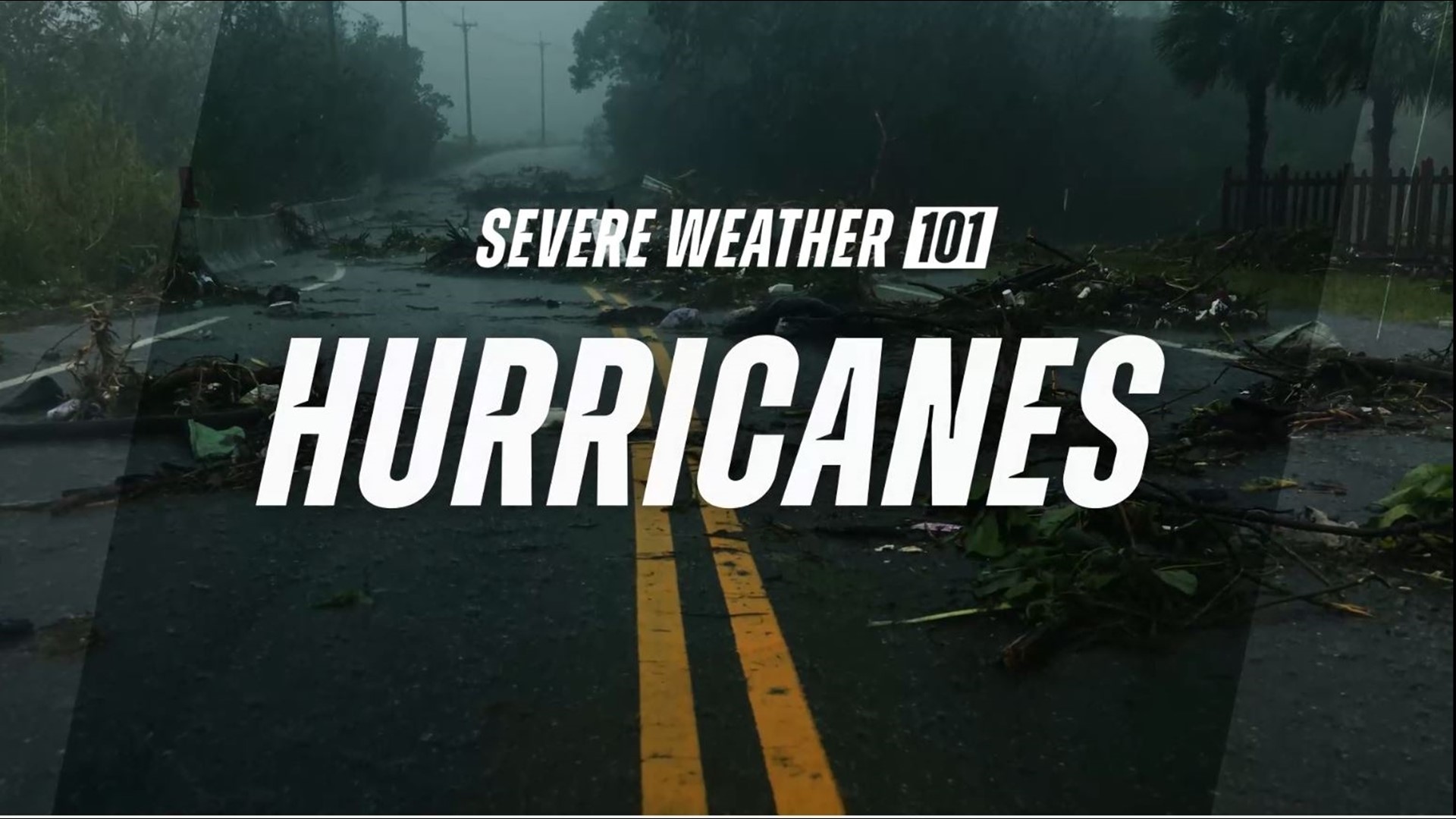NEW ORLEANS — Katrina's hurricane-force winds left downtown New Orleans littered with broken glass. Debris was everywhere on the morning of August 29. Still, that was a relief.
"The first impressions right after the storm were that we had really dodged a very big bullet," said Sally Forman, then communications director for New Orleans Mayor Ray Nagin.
But Forman soon learned that Lake Pontchartrain, swollen by storm surge, was invading the city.
"The first things we were hearing in the operations center were that there was a 20-foot break in a levee in Lakeview," she said.
Later, they learned it was actually a 200-foot break on the east side of the 17th Street canal. Water was attacking the city and had overtopped and breached the city's flood protection in dozens of places, knocking out parts of the London Avenue canal on both sides and ripping open the Industrial Canal flood wall.
The bad news kept getting worse.
"Water was pouring into the city," said Forman. "By that point we also knew that the city was inundated. The pumping stations were failing. We found out that people were dying, people were on rooftops and were vastly in need of rescue."
A lot of police, firemen and EMS crews, many of whom had lost their own homes, worked tirelessly along with Wildlife and Fisheries, the Coast Guard and neighbors with boats to rescue people.
Nagin said at the time that many police officers and firemen did not wait for boats to arrive. They heard people screaming and dove into the fetid water and risked their lives to try to save people.
Then-councilwoman Cynthia Hedge Morrell said she felt like she had been thrown into a deadly horror movie as she looked at deep floodwater around the Circle Food Store.
"There was a person floating in the water that had drowned. I still see that guy."
Forman said people in the 911 center were traumatized by the number of calls they were receiving from people reporting deaths or people who were in life-threatening situations.
By Monday night, Mayor Ray Nagin seemed shaken as he briefed us on what he knew.
"The city of New Orleans is in a state of devastation," he said at the time. "We probably have 80 percent of the city underwater, with some sections of our city in water as deep as 20 feet. We still have many of our residents on roofs."
"It was horror," recalled then-councilwoman Jackie Clarkson. "I've never seen people so frightened in all of my life. I've never seen, never felt so helpless. No one, none of us ever felt so helpless."
Cell towers were down. Communication out. Clarkson said she helped people in assisted living homes in the upper 9th Ward by getting high-water vehicles in there and evacuating them.
But there was more trouble. Thousands of desperate people were collecting at the convention center in blazing heat. Thousands more were already stuck in the Superdome.
"We had no electricity and no sanitation at the Superdome with 30,000 people," said Forman. "There was no food and no water with another 30,000 people at the Convention Center. We had looting and lawlessness."
People around the world could see what was happening in live TV coverage. But three days after Katrina, the city still waited for state and federal assistance: buses to evacuate people plus food and water for those in need.
"The frustration was, why can't we get these people out of the city?" said Morrell. "What is the bureaucratic baloney?"
Wednesday did bring General Russel Honore' who reportedly told a FEMA rep explaining the rules for getting help to shut up and 'to hell with the rules.'
"Oh yeah," said Honore'. "The first thing you gotta do in a disaster is throw the rules out the book, because the rules are meant for peacetime, when everything's working normally."
But Forman said though things had been very bad, Thursday was the worst.
"We had a chemical explosion. We had drowning and death. We had people on rooftops."
That was the night Nagin went on his famous rant on the radio.
"I need reinforcements. I need troops, man. I need 500 buses, man. This is a national disaster. Get every doggone Greyhound bus line in the country and get their asses moving to New Orleans."
By Saturday, buses were taking people out. General Honore's troops were restoring order, and hundreds of thousands of lives were forever altered.
"Everyone lost something big," said Forman. "Everyone lost something small. Everyone knew someone who was devastated in some way."
► Get breaking news from your neighborhood delivered directly to you by downloading the new FREE WWL-TV News app now in the IOS App Store or Google Play.

